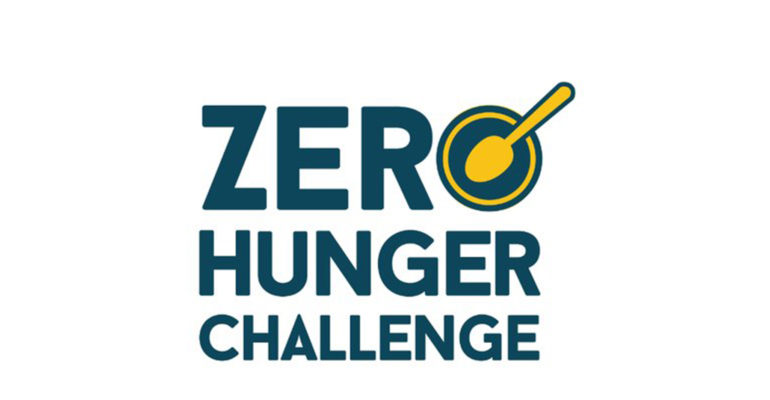SI UN Representative Liliana Mosca reviews the Italian Government’s response to Sustainable Development Goal 2 ‘Zero Hunger’.
“In the UN Assembly 2015 New Agenda, the abolition of chronic undernourishment within the year 2030 was a key element of SDG 2; ‘Zero Hunger’. There is a clear link between SDG2; ‘Zero Hunger’, and SDG 12; ‘Responsible Consumption and Production’. The third target of SDG 12 reads: “By 2030, halve per capita global food waste at the retail and consumer levels and reduce food losses along production and supply chains, including post-harvest losses”. The loss of food in the chain of production and distribution, including the loss of the harvest must be reduced. A fifty percent reduction both of food waste in the consumption chain and in the retail price is desirable by 2030. Moreover, the aforementioned goal also aims at a general reduction of food loss along the supply chains.
In support of achieving SDG 2, the Food and Agriculture Organisation (FAO) General Director, José Graziano da Silva has joined the call for a world renewed commitment of zero tolerance regarding the loss and the waste of food. Silva declared “Zero tolerance towards food loss and waste has a value also from an economic perspective. It has been proven that a single dollar invested by a society to reduce waste and loss provides a saving of 14 dollars”. According to da Silva, it is necessary “to invest in planning to prevent food loss and waste which also means investing in favor of the poor, thereby promoting food sustainable systems for a zero hunger world”. Every year one third of food production for human consumption is lost or wasted. This waste can be seen within the entire production chain, from ‘farm to table’. In addition, the reference to waste also concerns labor, water, electric energy, land, and other means of production. The world-wide problems of famine and drinkable water supply affected 923 million people in 2017. The majority of these live in the rural areas of developing countries, and are peasants, shepherds, fishermen. Moreover, according to The World Health Organisation (WHO), every year 600 million people contract illnesses from contaminated food, and 420,000 die. If the waste of food is reduced in the entire food process industry, a healthy food system will contribute towards promoting climate adaptation and mitigation. In this way natural resources can be saved and means of rural support can be strengthened.
The ‘Gadda Law’, otherwise referred to as the ‘Anti-waste Law’ came into effect in Italy in 2016. This provides bureaucratic reductions and tax concessions in favour of people who give food to charity. The variety of products which can be donated, including medicines, has since been increased. Moreover, those who donate have tax reductions. The ‘Gadda Law’ recognised the importance of the value of this donation scheme to help combat waste, and the decision has been made to widen the number of subjects who deal with social activities. Some facilities have been granted in favor of all companies. The difference between food “preservation” and “expiry date” has been defined, so it is at last possible to donate the term of conservation (TMC) products free of charge and safely. Moreover, the Local Councils have been allowed to reduce the Tari (waste disposal) tax for companies which can prove that donations have been made. Significant improvements have been recorded in fighting food waste. In 2016 food waste was ranked at approximately 145 kilos per family and about 63 kilos per person. Figures have currently decreased to about 84 kilos per family and 36 kilos per person. Italy’s ‘National Strategy for Sustainable Development’ was approved by the Council of Ministers on 2nd October 2017. The strategy clearly recognizes the link between SDG 12 and SDG 15: ‘guarantee agricultural and forest management sustainability’. Throughout the whole productive process it aims “to assert sustainable production and consumption models” (SDG 12).
It should be remembered that food waste amounts to more than 8 billion euros a year. In Italy, “National day to Prevent Food Waste” is now into its fifth year. This campaign was launched by the Ministry of the Environment working closely with the campaign “Zero Waste” and Bologna University. In the 2018 Balance Law two amendments were added to the Gadda Law. These amendments increased the number of products which can be donated for social aims. Some procedures and some tax relief have made this easier, so that it is much more affordable now either to donate or to receive the food surplus. The Ministry of Agriculture, Food Supply and Forestry, last 30th March, made available 700 thousand euros for innovative projects which were able to prove that they were indeed aiming at the reduction of waste and at a better distribution of food surplus. Italy’s National Soroptimist President has been informed of this funding opportunity and hopes that the Union and the single clubs, in the Soroptimist philosophy, will give the proposal serious consideration and take part.”

